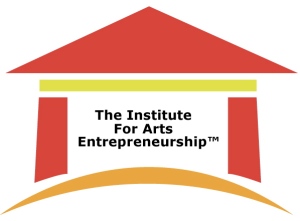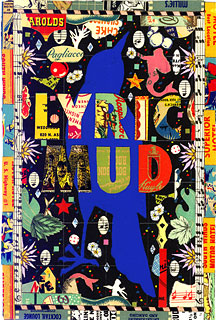
Of course! You don’t have time to blog. You don’t even have enough time to breathe, with all your practicing, art making, career promotion, life responsibilities, and the occasional social engagement. If there’s one thing you simply can’t squeeze into the schedule, it’s maintaining a blog! Don’t be ridiculous.
That’s what I used to think as well. Yet this week, as I unveiled a new and improved blog for my site THE SAVVY MUSICIAN (and with it, a commitment to keep up the posts), an important realization struck me—blogging is one of the most effective ways to build credibility, loyalty, and an international fan base. If you are an entrepreneurial artist hoping to increase your success and opportunities, a killer blog may prove to be one of the most important and cost effective marketing tools at your disposal.
As was argued in The Savvy Musician, without web presence, you don’t exist. You’re invisible, at least in the eyes of most of the world. And while a well constructed but static website can do a lot to advance your cause, a relevant and up-to-date blog shows that you are active, productive, and a reliable source of information. The best blogs give viewers a reason to visit your website on a regular basis, and attract new visitors because of the valuable content. Better yet, a great blog will establish you as a leading and active voice in your field. As a result, you will probably get more gigs, media attention, invitations to speak publically on your topic, and a host of additional opportunities.
Now, the act of simply having a blog won’t necessarily help you. Thousands upon thousands of bloggers spend obscene amounts of time writing articles that are viewed by almost no one. For success, it is imperative to find a topic that resonates with readers:
- No blogger diaries! Far too many blogs are simply recaps of people’s lives. But here’s the problem—nobody cares (except perhaps family members and close friends)! So you heard a great performance of Mahler, or your stand partner had cheese stuck between her teeth during rehearsal…snooze. People are much more concerned with themselves. Unless your existence is extraordinarily interesting, reject this approach or count on a miniscule readership. Be careful of overusing the word “I.”
- Focus on your reader. A far better approach is to write about your readers. What do they care about? What are their concerns? Embrace the word “you,” and choose topics interesting to them.
- Be Different. Find a blogging topic or angle that isn’t oversaturated with competition. For example, there are already great blogs dealing specifically with some instruments. But others have almost no quality sites, and that represents a huge opportunity for some savvy musicians in the near future. (Maybe you?) If there are already good sources available that deal with your general area of interest, find a specific angle that distinguishes your work.
- Find your niche. In my post The Best in the World, it was argued that savvy musicians should discover the one thing they can do better than anyone else in the world. A blog is the perfect platform for establishing yourself as a leading expert in a specific area.
- Stick with it. Once you have an angle, don’t deviate too far from it. Readers expect consistency. If your focus is instrument repair, a post on that great concert you attended last night may appear irrelevant and confusing.
- Solve problems. The most widely read blogs often solve problems for their audience. For example, musician bloggers could focus on how to throw a better wedding reception, how to practice more effectively, how to address the psychological stresses of being a musician, etc.
- Provide resources. Blogs that offer helpful resources—from links to manuscript paper to fonts to practicing exercises –will be visited again and again.
- Influence taste. Thanks largely to the Internet, there are millions of products, experiences, and messages competing for attention. Ironically, in a time when everybody has access to just about everything, digging through the clutter can be a nightmare. Bloggers who point people towards the good stuff (great recordings, great concerts to check out, great woodwind quintets, etc.) provide a valuable service to both consumers and vendors. Rather than being comprehensive, focus on highlighting quality gems.
The Savvy Musician Resource Center maintains a library of fantastic blogs that we feel are helpful to musicians. To view our blogroll, click here. Please contact us if you’d like to propose an invaluable site that follows the guidelines above and should be added to our collection.
Love music, but hate to starve? Hoping to achieve more success with your musical career? Visit www.SavvyMusician.com for a Resource Center with 1000+links, valuable articles, information about the most important music career book in print, and more.










I could not agree more. Sometimes it is extremely overwhelming to imagine all the possibilities that are available to you right within your reach. If you have ideas, in agreement to what Dr. Cutler is discussing, I feel that to organize those ideas you need to imagine your thoughts as a complete image. Try to take your jumbled antics and form them into a collective product that makes a difference, and truly speaks to others; otherwise, they are only your thoughts, and they will only be for you to hear-and why not share something wonderful with the world? There is nothing else to lose. In short, have confidence, have the courage, and have the faith that anything is worth a shot.
This interests me because I want to find more viable ways of reaching large groups of people to share musical resources. Despite the extensive world of blogs and bloggers out there, there is still much to be shared. I would be interested to find examples or techniques of blogs that really connect people across discipline interests, as well as techniques to really make what I have to say relevant to other people.
You’re absolutely correct. There are so many niches yet to be filled. Of course, this very blog, Entrepreneur The Arts, is a great example of connecting people across disciplines.